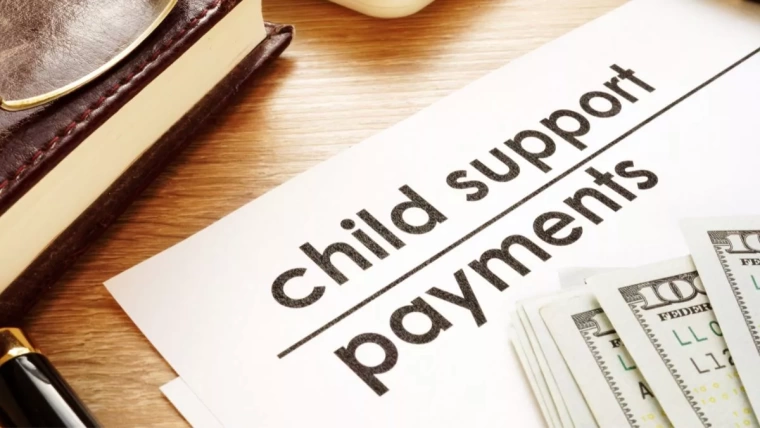Child support is an important part of family law in California. It makes sure children receive adequate financial support from both parents. However, the custodial parent sometimes may not want to receive child support from the noncustodial parent for certain reasons. They may ask, “What happens if you don’t want child support?”
It’s important to understand California’s laws on child support payments. Then, you can know what to expect and how to proceed during family court.
Understanding Child Support in California
The California Family Code governs child support within the state. These payments are intended to provide for a child’s basic needs, such as housing, food, clothing, education, and healthcare. The state uses a standard formula when determining child support payments:
- K: This is the total amount of income calculated for child support.
- HN: This number represents the net monthly amount of the higher-earning parent’s income.
- H%: How long the higher-earning parent spends with the child is represented as a percentage.
- TN: Both parents’ net monthly income are totaled in this part.
Child support is considered the right of the child more so than a right for a parent to receive it. This means, even if the custodial parent does not want to receive child support payments, the court may still order the noncustodial parent to pay it.
Declining Child Support in California
While the court has the final say in whether the custodial parent can refuse child support payments, there are some options to consider regarding child support:
- Mutual Agreement Between Parents: The parents may come together and reach an informal agreement where the custodial parent chooses not to enforce child support payments. However, this agreement is not legally binding unless the court approves it. If the custodial parent later changes their mind, they can still file to obtain child support payments.
- Court Approval: Even if both parents make the agreement to waive child support payments, the court can intervene if they determine that the financial support is in the interests of the child. A judge will review the agreement and make a ruling.
- Public Assistance and Child Support Requirements: If the custodial parent receives public assistance, such as CalWORKs or Medi-Cal, the state may mandate child support payments to reimburse the public funds used for the child’s care.
- Future Financial Security for the Child: Circumstances often change. Therefore, even if the custodial parent is financially stable now, difficulties may arise later. In California, child support orders can be modified moving forward but are not retroactive, so any waived past support cannot be reclaimed. If circumstances change, either parent can request a modification of the child support agreement.
- Parental Responsibilities and Rights: Child support and parental rights are not the same thing. Just because a parent pays child support does not mean they receive custody or more visitation rights. Likewise, waiving child support does not eliminate the noncustodial parent’s responsibilities unless their parental rights have been legally terminated.
Risks of Waiving Child Support
While deciding not to pursue child support in California is possible, there are important legal and financial considerations to make. Some of these include:
- Financial Instability: If financial hardship arises in the future, child support payments may be necessary.
- Government Intervention: If the custodial parent applies for public assistance, the state might force the noncustodial parent to pay child support to help recover government costs, regardless of whether you have prior agreements in place.
- Impact on the Child: Child support is meant to provide for the child’s well-being. What’s in their interests should take priority when determining child support.
FAQs
Q: Can I Say I Don’t Want Child Support?
A: In most cases, child support is considered a right for a child and not for the parent, so a parent cannot waive it. However, if both parents agree that child support isn’t necessary due to shared expenses, equal custody arrangements, or other financial agreements, they may petition the court for an order that reflects this agreement. The court still acts based on the child’s interests and holds the right to rule otherwise.
Q: What Are the Rules for Child Support in California?
A: California’s Family Code determines the principles and guidelines for determining child support obligations. Both parents are mutually responsible for providing for their children. The state considers each parent’s actual income and level of responsibility for the children. Child support orders are intended to be fair, sufficient, and timely, reflecting California’s high standard of living and corresponding costs associated with raising a child.
Q: How Much Does a Parent Pay in Child Support?
A: The amount a parent pays in child support is determined by a statewide guideline formula. It considers several factors, including:
- Both parents’ incomes
- The amount of time each parent spends with the child
- Tax deductions
- Other relevant financial information
This formula ensures child support orders are consistent and equitable, providing for the child’s financial needs while accounting for each parent’s ability to pay.
Q: What Are the New Laws for Child Support in California?
A: In 2024, California updated its child support laws in several ways. One such update is that child support is now based on the parents’ net incomes, rather than gross incomes. Parents are also now protected from child support payments that cause them to fall below the poverty line. Furthermore, the state placed a cap on how much higher-income earners can pay in child support.
Contact a California Child Support Lawyer Today
You may be wondering what happens if you don’t want child support. Perhaps you need help establishing, modifying, or enforcing a child support order. No matter the situation, the experienced team at Khalaf Law Group can assist you. Navigating child support laws can be complex, but it’s crucial to be sure your child’s financial needs are met.
Our skilled child support attorneys work diligently to protect your rights and the interests of your child. We are committed to providing personalized solutions, tailored to your specific situation, so you can receive the support you deserve throughout these complicated proceedings.
Don’t navigate child support laws alone. Let our team explain California’s child support laws and how they can impact your child and your future. Contact us today to schedule a consultation.



